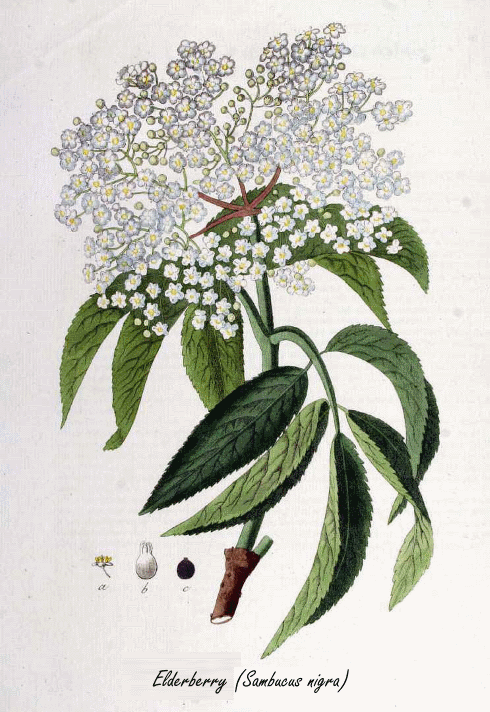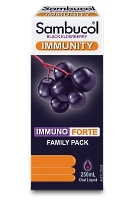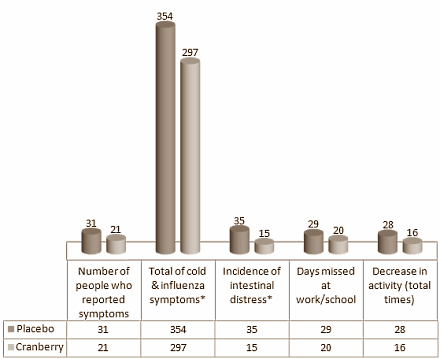|
Elderberries protect against flu viruses in these two ways
The readers of this web magazine know very well that elderberries help against colds. And it could just be that elderberries also protect against aggressive influenza viruses, Australian molecular scientists at the University of Sydney discovered.
Study
The researchers experimented with cells in test tubes, not with test animals or humans. They made their extracts from Tasmanian elderberries themselves.
Australian Pharmacare Laboratories [pharmacare.com.au] sponsored the study. Pharmacare produces supplements, and that includes supplements with Sambuca nigra extracts like Sambucol Immunity.

Results
The researchers brought diluted elderberry juice, together with an influenza A virus (H1N1), into contact with layers of kidney cells [MDCK]. If the viruses could infect the cells, they would turn white. The stronger the concentration of elderberry juice, the smaller the number of infected cells.

The substances in elderberry juice that protected against virus infection were polyphenols, the Australians discovered. In particular cyanidin-3-glucoside [structural formula shown here] proved to be effective. Probably cyanidin-3-glucoside and similar polyphenols block the action of proteins that viruses use to invade cells and reproduce.
We have previously written about cyanidin-3-glucoside. The substance increases insulin sensitivity in muscle cells, and probably explains why elderberry extract increases insulin sensitivity in in vitro studies.
[Nutr. 2000 Jan;130(1):15-20.] No wonder some companies use cyanidin-3-glucoside in body recompositioning supplements.
In another in vitro experiment, the researchers brought elderberry extract into contact with A549 lung cancer cells, after which they measured the manufacture of inflammatory proteins by the cells. Elderberry juice increased the production of interleukin-6 by a factor of 207, that of interleukin-8 by a factor of 28 and that of TNF-alpha by a factor of 60.
This could mean that elderberry juice not only reduces the chance that the influenza virus invades cells, but also activates the immune system to attack cells infected with viruses.

This immunological effect of elderberry had nothing to do with polyphenols such as cyanidin-3-glucoside, the researchers discovered. Based on previously published research, they suspect that the release of inflammatory factors is mainly caused by polysaccharides in elderberry.
Conclusion
"Elderberry showed potent antiviral activity [...] against influenza infection", write the researchers. "These data support the use of Sambucus nigra berries as nutraceutical ingredients for the management of influenza infection."
Source:
Journal of Functional Foods 54 (2019) 353-60.
More:
Elderberries help against colds 04.06.2016
Archives:
Immune System
|
|








